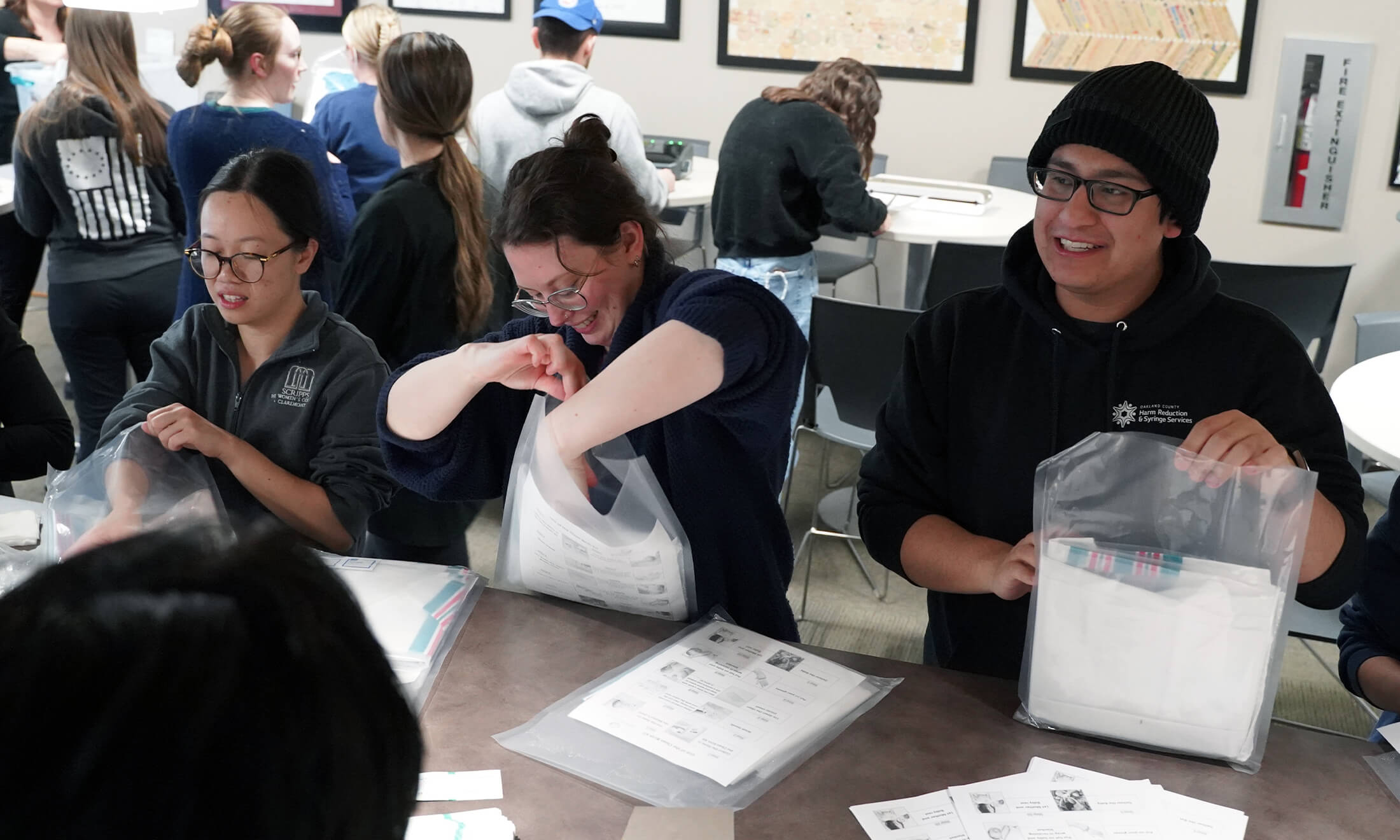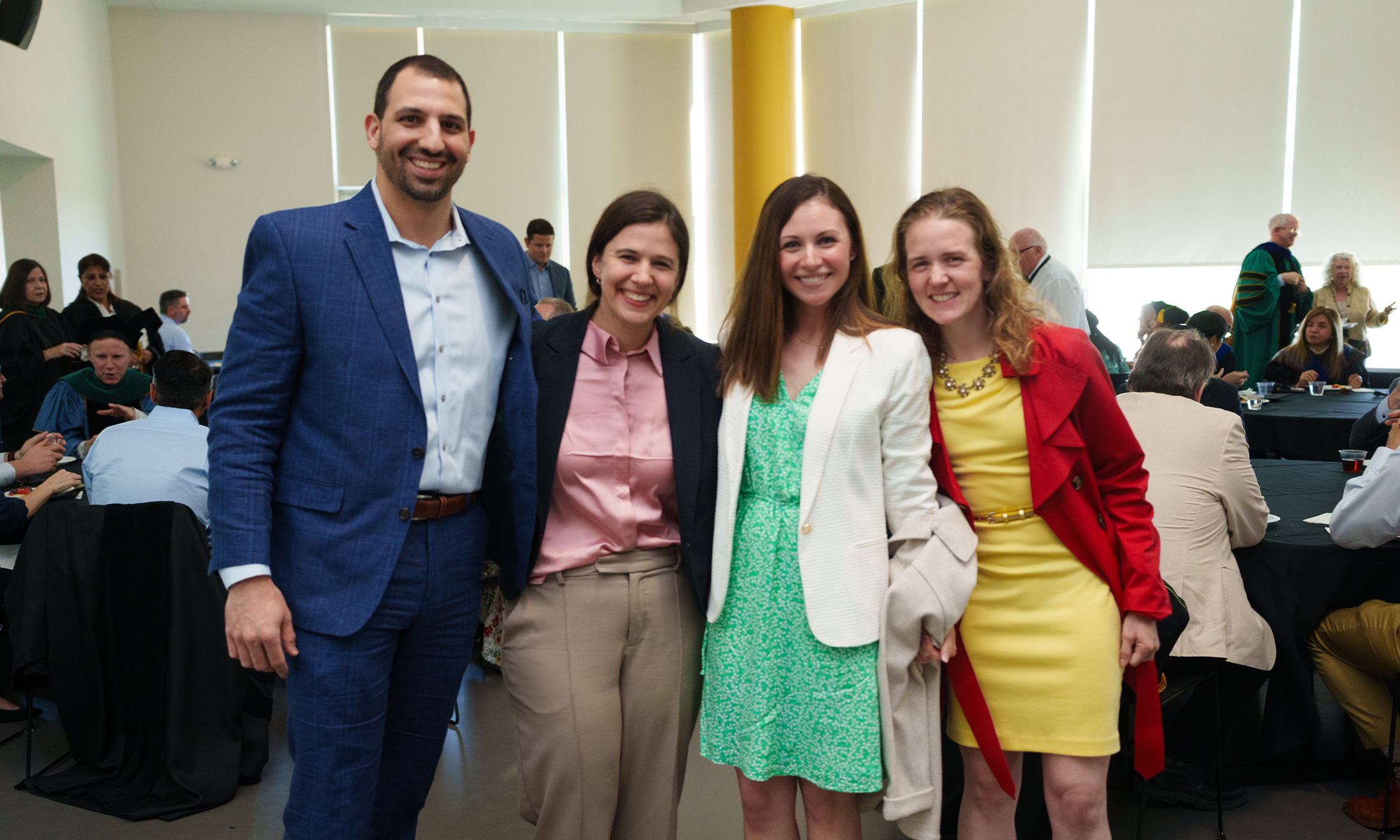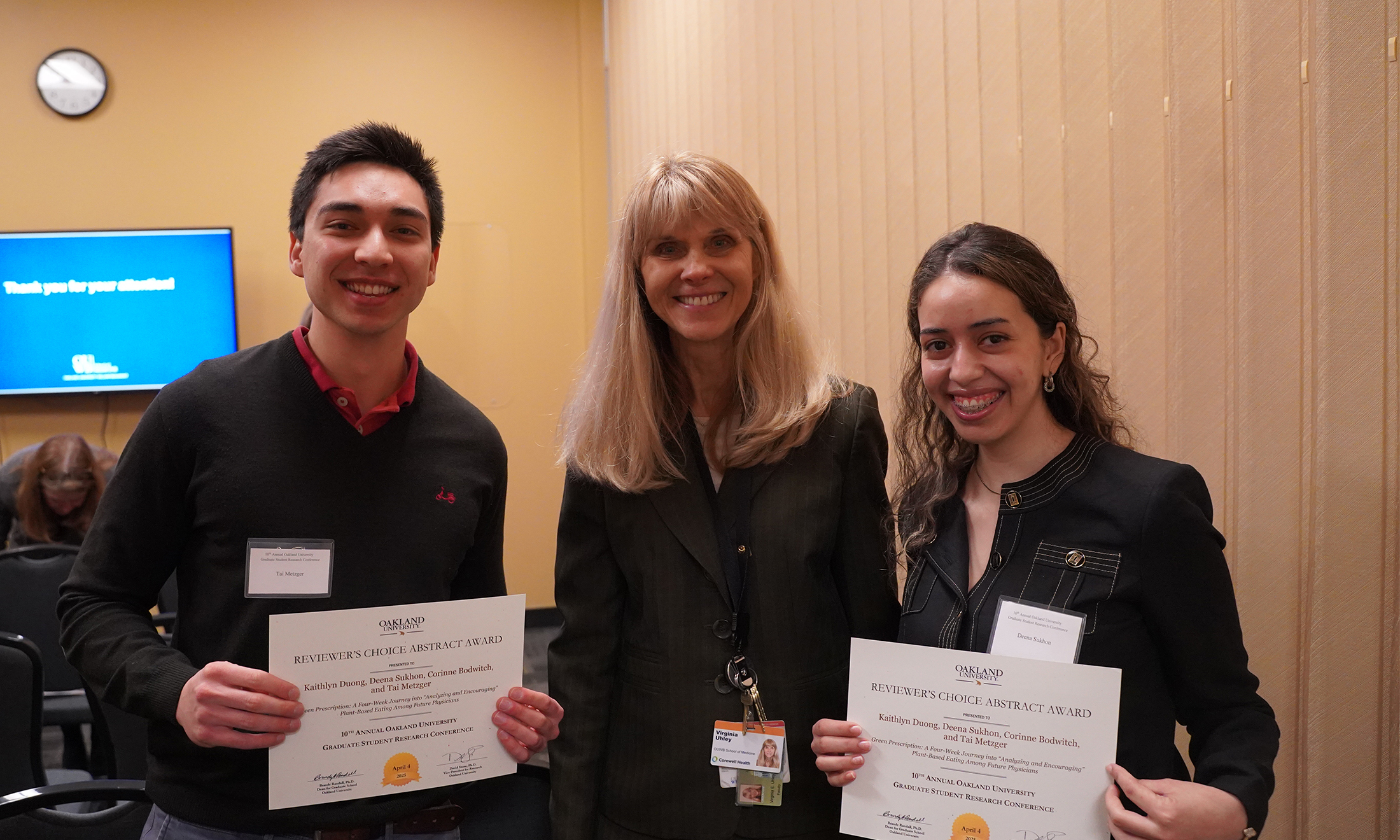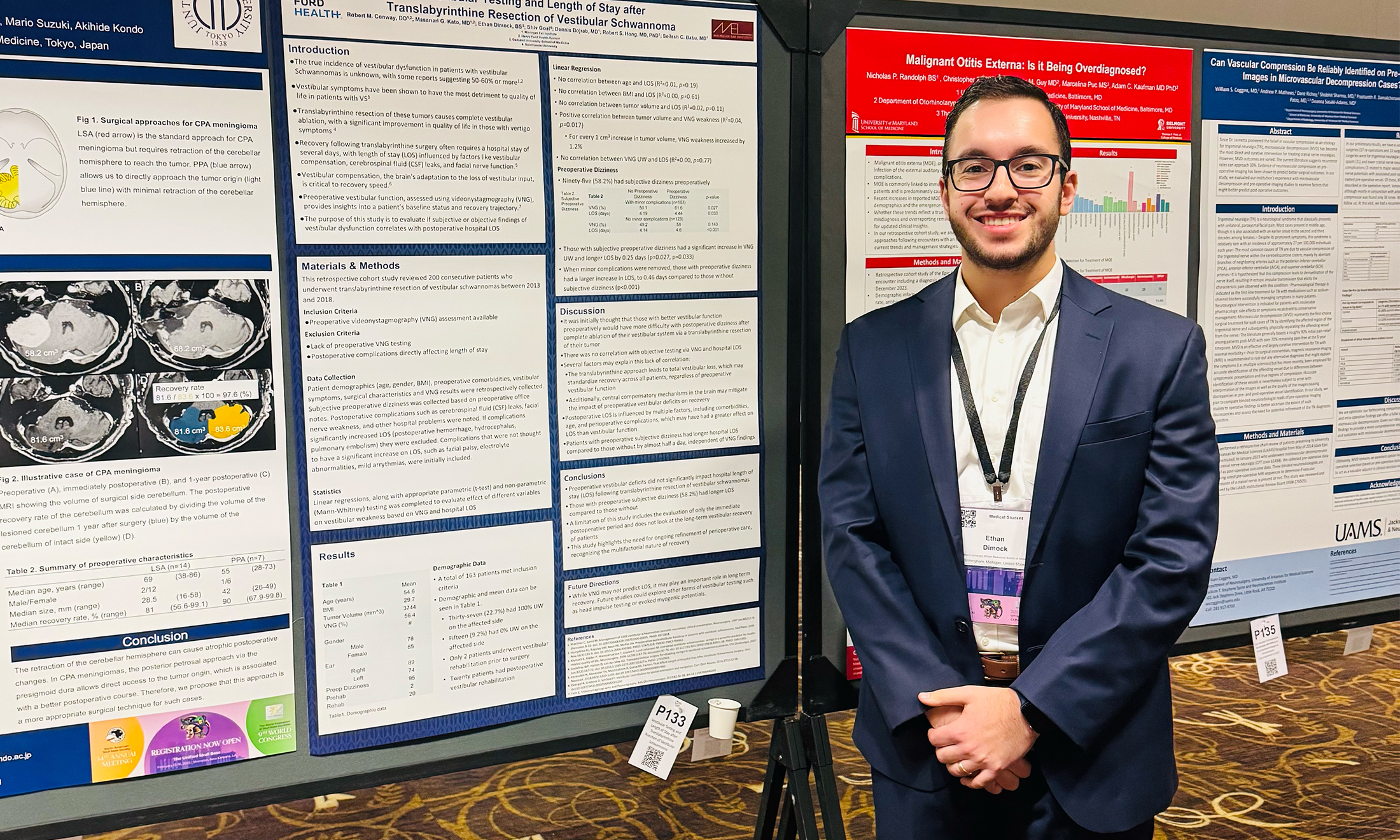Impacting the global community
Compass grant enables OUWB student orgs to help pregnant women in Nigeria
About two dozen medical students from OUWB recently took time for a project that could mean life or death for women and children thousands of miles away.
The project?
Assembling 50 clean birthing kits to help pregnant mothers in Nigeria, which is considered to be one of the most dangerous places in the world to give birth, according to the website Concern USA, which cites the World Health Organization.
The project was a collaboration between Farmington Hills-based Global Health Charities and two OUWB student organizations: Advocates for Global Health and Human Rights (AGHHR) and OB/GYN Interest Group (OGIG). It was funded by a $500 grant from OUWB’s Compass.
OGIG Vice President Ekaterina Lavroushina Clark coordinated the effort, which follows a similar one from last year that was held for mothers giving birth in Ukrainian bomb shelters.
“I was enthusiastic about continuing to grow this partnership with Global Health Charities,” said Lavroushina Clark. “OUWB students are able to work directly with a well-established local nonprofit that has made a profound impact on the lives of mothers and babies in nearly 20 countries.”
Volunteers ‘mean everything’
Global Health Charities aims to address “the sad and preventable deaths that occur in mothers and newborns who don’t have access to hospitals, health care resources, and clean supplies,” according to its website.
Since its 2013 founding, the nonprofit has assembled about 19,000 clean birth kits.
A typical clean birth kit comes in a vacuum-sealed plastic bag slightly larger than a standard one-gallon size. Vacuum sealing allows for shipment of more kits, and prevents tampering. In some situations, the bags are repurposed by end-users to transport water.
Inside each bag are several critical items: a piece of plastic sheeting that is 36 inches by 36 inches (to provide for a clean surface for the mother); a paper-wrapped razor blade; a bar of soap; a knit baby hat; a cotton receiving blanket; gauze; prep wipes; umbilical cord clamp; and two pairs of exam gloves.
Julie Borkowski, assembly coordinator for clean birth kits, said volunteers like the students from OUWB “mean everything” to the organization.
“Without volunteers, there’d be nobody to assemble the kits,” she said. “Not only that, but in this case (with OUWB), the project was funded with a grant.”
Lavroushina Clark said she was grateful to have support from OUWB officials, such as Tracey Taylor, Ph.D., associate professor, Department of Foundational Medical Studies, who served as faculty sponsor, and Compass, the OUWB department that oversees community engagement.
Overall, she called it “a success.”
“All of the volunteer spots were filled, and we had representation from students from M1-M3 years,” she said.
“The medical students appreciated an opportunity to engage with each other while making an impact on our global community.”
Looking forward, Lavroushina Clark said she hopes ‘that this can serve as an ongoing volunteer opportunity for OUWB students.”
Lee Szuba, development and community relations officer, Global Health Charities, said she agrees and only sees good things coming from relationship between her organization and OUWB.
“The great thing about these volunteers is that they’re going to end up in places around the country (as residents),” she said. “We’re local…so our reach is not huge. With these students going around the country, word of what we do hopefully will spread around, which is really awesome.”
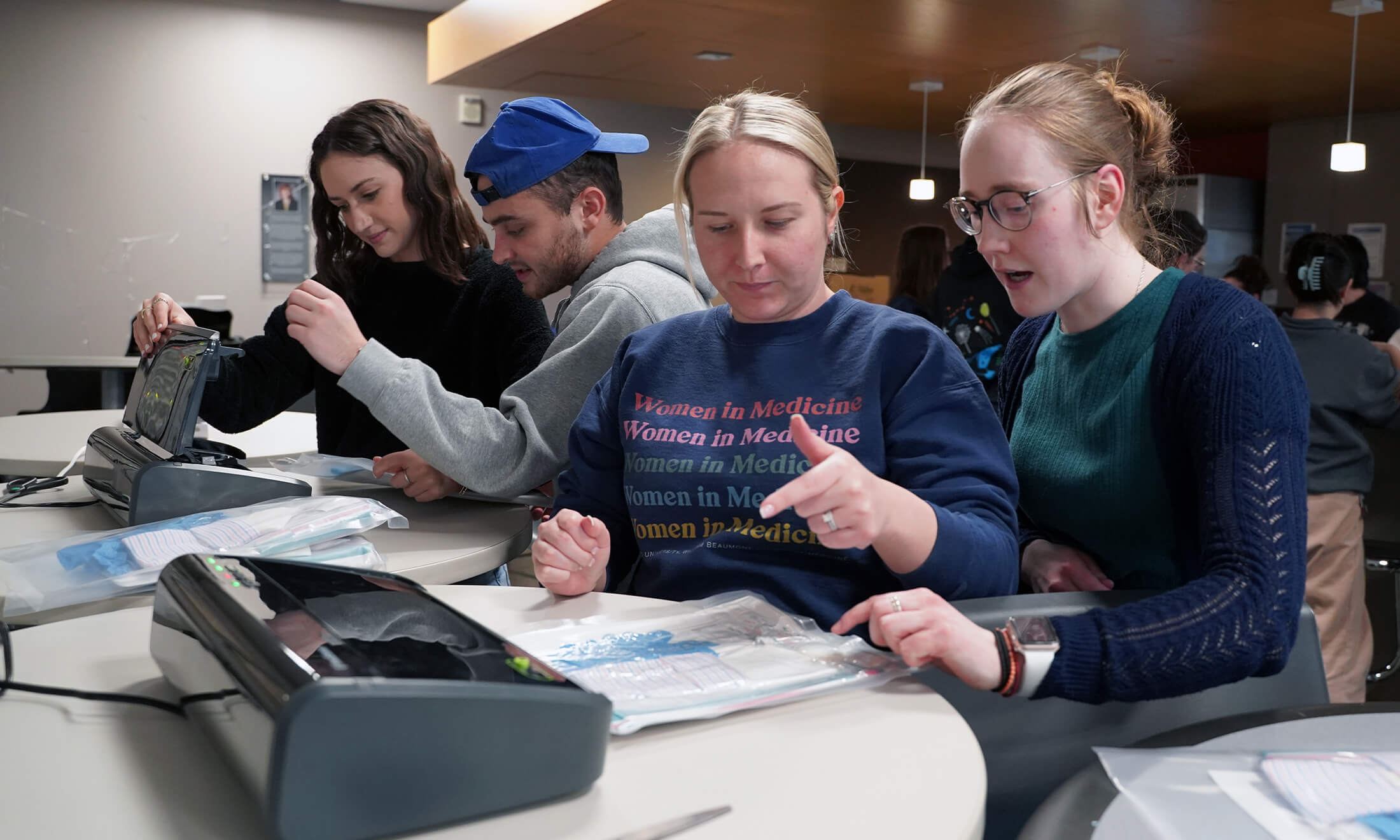
 April 27, 2023
April 27, 2023
 By Andrew Dietderich
By Andrew Dietderich